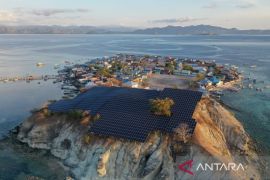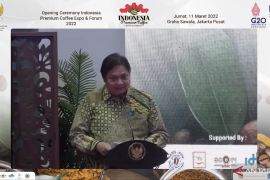Jakarta (ANTARA) - Climate agenda is among the key focuses that will determine the success of Indonesia’s G20 Presidency this year, according to founder and chairman of the Foreign Policy Community of Indonesia (FPCI), Dino Patti Jalal.
“The climate agenda will determine the success of Indonesia’s G20 Presidency, an opportunity that only comes in one generation,” Jalal remarked during a webinar on "The Future in a Net-Zero World" here on Wednesday.
The government has been progressively developing the climate policy since last year to support climate-friendly development, the former vice foreign affairs minister said.
“I was a bit worried, but after the COP26 in Glasgow, the UK, last year, we are gaining a very strong momentum to create a net-zero world by the next century,” he noted.
More and more countries have announced their targets for net-zero carbon emissions, including Indonesia, which is aiming to achieve the target by 2060 or earlier, he added.
It was such a big target that earlier only European countries had the guts to set it, but nowadays small groups of countries have already made it into law, the former Indonesian Ambassador to the United States said.
“The net-zero carbon emission is the government’s long-term policy, and we just started this struggle,” he pointed out.
Related news: RI prioritizes energy transition to green energy during G20 presidency
Jalal expressed the hope that more countries would join and set ambitious targets for net-zero carbon emissions by shifting from fossil fuel to electric vehicles since the transport sector contributes 5 percent to global carbon emissions.
China, for example, is targeting to ensure 30 percent of its vehicles are electric by 2025 and currently, Indonesia has also commenced the development of such pollution-free vehicles.
“To this end, this is what we have to achieve by 2060 or earlier,” Jalal said.
Indonesia is focusing on three key agendas during its G20 Presidency— global health architecture, digital transformation, and energy transition.
Energy and Mineral Resources (ESDM) Minister Arifin Tasrif had earlier underlined Indonesia’s commitment to energy transition for reducing carbon emission as part of climate change mitigation.
The government has prepared some measures to help run the program to address the carbon emission reduction in energy sector and to achieve 23-percent renewable energy mix by 2025, he added.
Related news: UI Prof views G20 as solution for climate crisis, energy resilience
Related news: G20 a momentum to discuss climate issues thoroughly: expert










